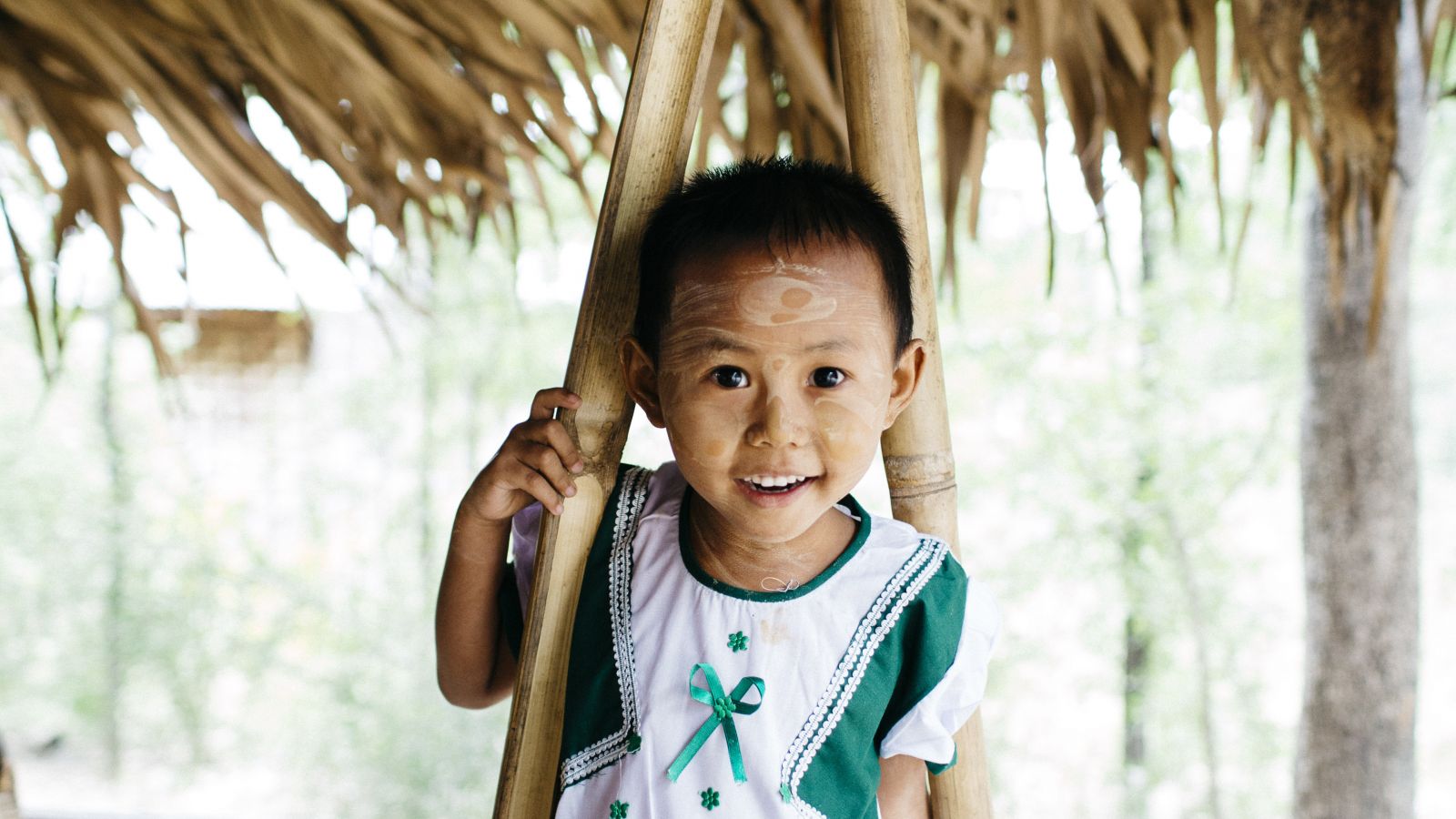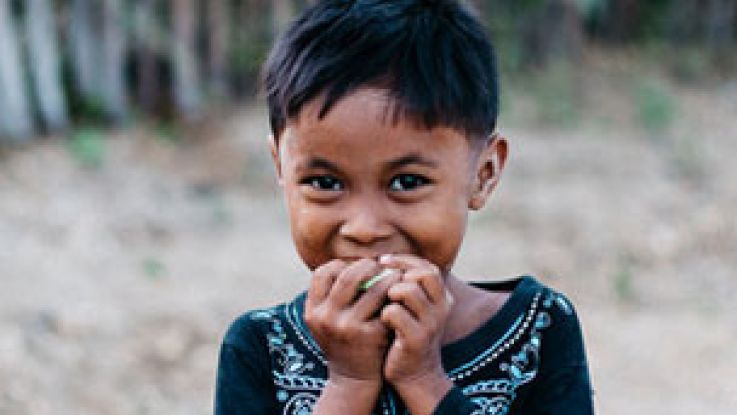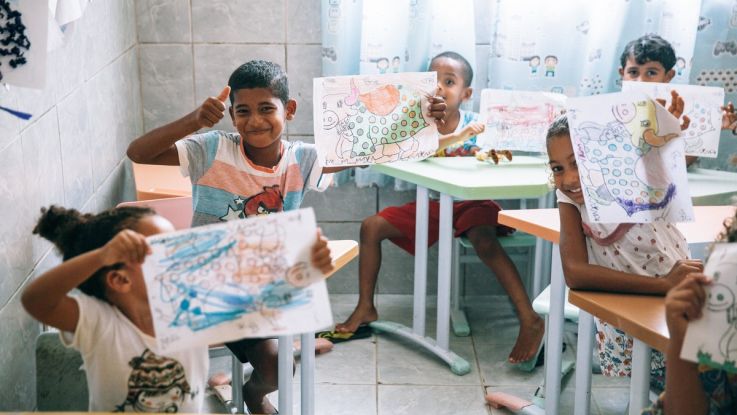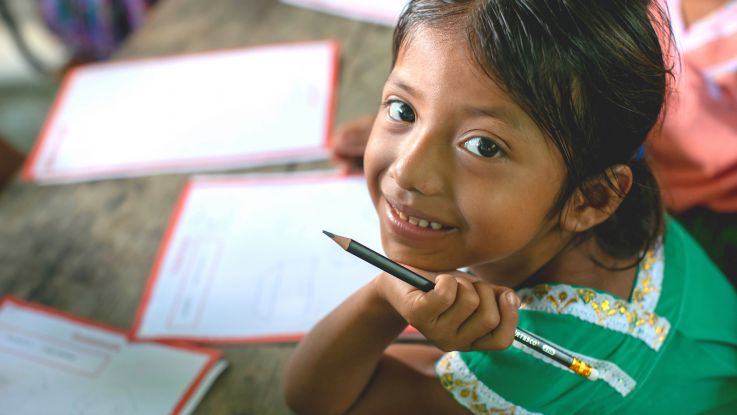History of ActionAid’s child sponsorship
Over 50 years of child sponsorship
ActionAid has been changing lives of children and communities through child sponsorship for over 50 years.
Our child sponsorship programme doesn't just provide short-term solutions in the form of food, water and school books to children over a small period of time.
The idea behind our initiative is to ensure a child's whole community benefits from the sponsorship as well.
Because we believe that children can only thrive when the environment around them is conducive to their long-term development.
This is why, from the start, we have been working closely with local communities in countries around the world.
Trace the history of ActionAid's child sponsorship programme and find out how we developed an initiative that is helping thousands of people around the world.
Story of ActionAid’s child sponsorship
In 1972, a humanitarian and philanthropist named Cecil Jackson-Cole, founded a child sponsorship charity called Action in Distress.
This was to be the precursor for ActionAid, as we know it today.
In a small, rent-free office in Oxford Street, he signed up 88 sponsors for children in India and Kenya. This paid for their school books and uniforms.
By the time our first overseas office opens in Nairobi, Kenya in 1974, there were 2,000 sponsors signed up to the scheme.
A few years later, we launched child sponsorship in Burundi. And the total number of children sponsored around the world rose to 12,150.
In 1978, our first community-wide development project, funded by child sponsorship started in Andhra Pradesh, India and others soon followed in Burundi, Kenya and the Gambia.
In 1979, we changed our name to ActionAid and supported nearly 40,00 children around the world through sponsorship.
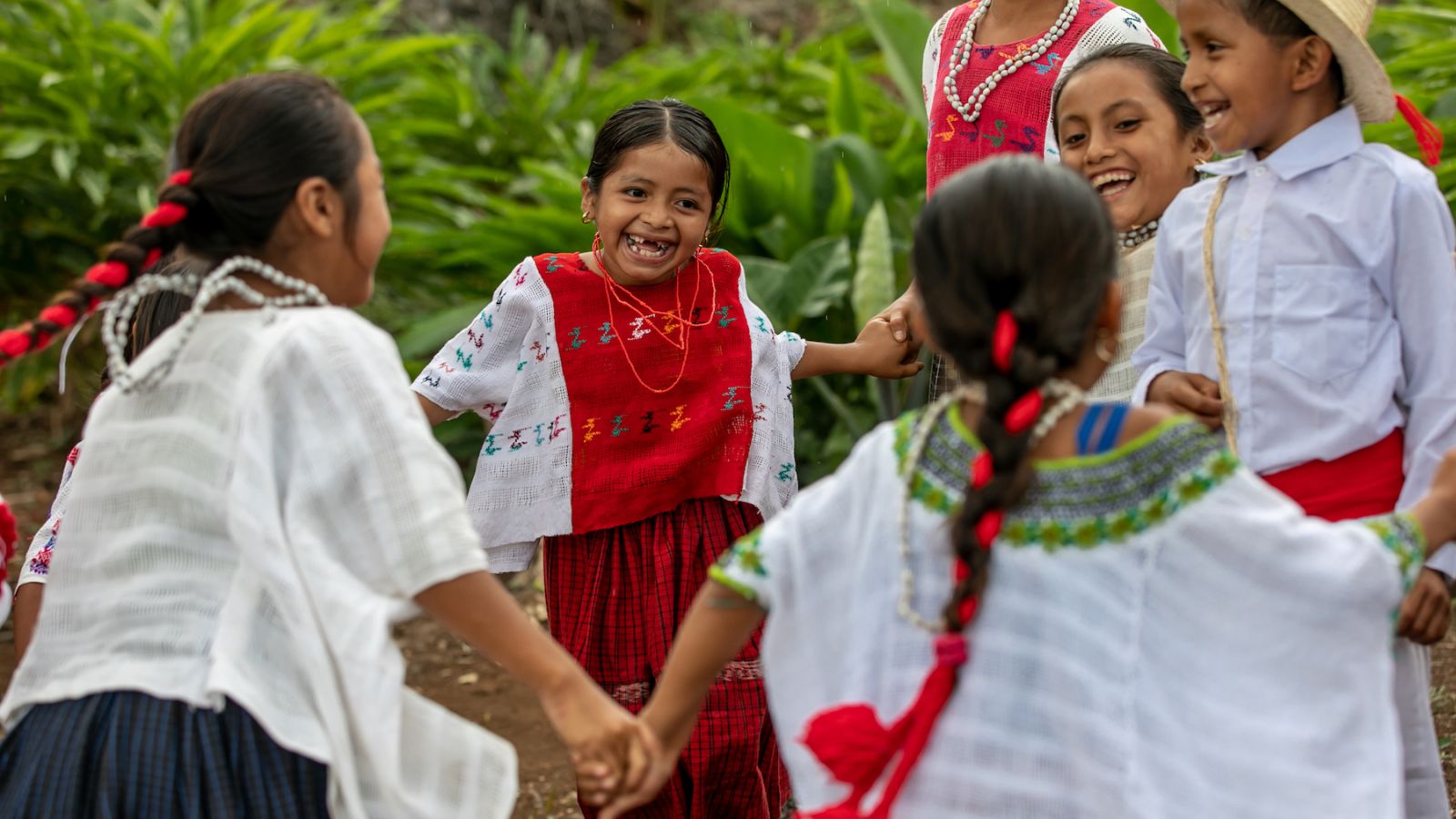
1980s
At the start of 1980s, we started work in refugee camps in Somalia and launched a twin programme between UK communities and villages in India and the Gambia.
By our 10th anniversary in 1982, we sponsored 73,200 children. Our sister organisations in France and Spain had launched by this time as well.
1985 was the year of Live Aid and the famine prompted us to start work in Sudan.
By the late 80s, celebrities such as Hugh Dennis and Nicolas Owen had joined ActionAid as child sponsors.
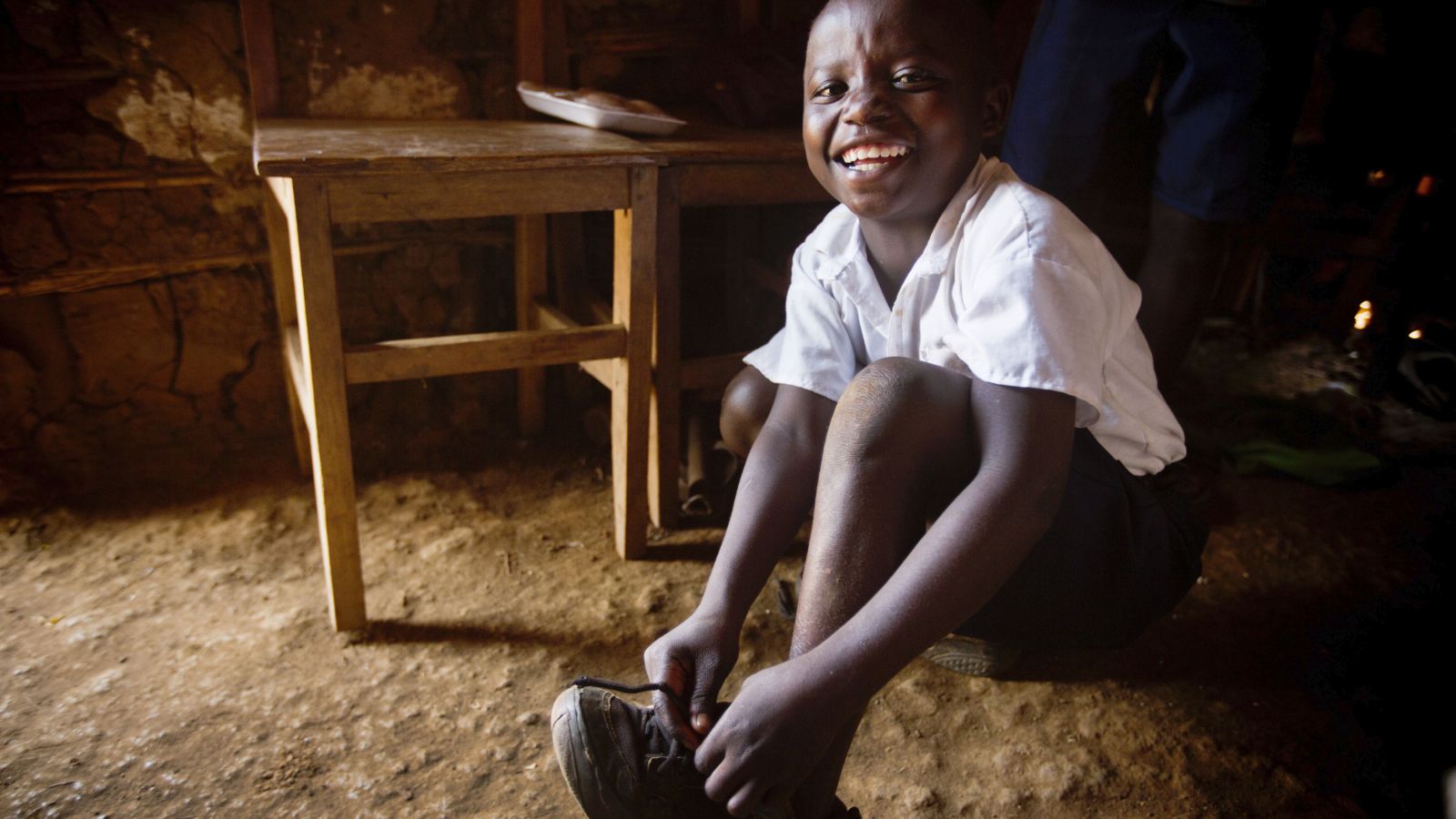
1990s
In 1993, we launched a literacy tool called Reflect which taught five million people across 70 countries to read and write. Reflect went on to win five UN literacy prizes.
In the same year, after the genocide in Rwanda, ActionAid was the first charity to organise emergency relief in Zaire's (now the Democratic Republic of Congo) refugee camps.
In 1995, Prince Charles became our patron and the decade ended with the launch of our first global education campaign.

2000s
In 2001, the Gujarat earthquake killed 20,000 and left one million people homeless. ActionAid supported women and young girls and campaigned against trafficking.
We ran a campaign to abolish school fees in Kenya and helped around 2 million children in school in 2003.
In 2004, we helped persuade the government to spend 0.7% of national income on development aid.
By 2006, the Global Campaign for Education had helped 40 million children into school and we relaunched our sponsorship programme in Sierra Leone.
In 2008 we resumed chid sponsorship in Burundi after the civil war ended.
2010s
In the 2010s we expanded the child sponsorship programme further in Africa, South-East Asia and the Middle East.
In 2011, we set up child sponsorship in Liberia.
In 2012 and 2013 we started working with communities and sponsored children in Myanmar and Democratic Republic of Congo, respectively.
By the middle of the decade, the devastating ebola virus spread in west Africa affecting Guinea, Sierra Leone, and Liberia.
In Sierra Leone, schools were closed and families were quarantined in their houses. ActionAid's child sponsorship programme ensured children were provided with textbooks and educational materials so they could study at home during isolation.
Over 12,000 children in Sierra Leone were orphaned during the ebola epidemic. ActionAid ran a campaign looking for new child sponsors for these children so they could have shelter, food and an education.
In Liberia, our child sponsorship programme supported families and funding programmes to help Liberians rebuild their country.
We focused on prevention of the spread of ebola and provided psychosocial support to orphans and vulnerable children in 45 communities.
Child sponsorship in Liberia ensured that over 2,300 women and young people could rebuild their livelihoods after the epidemic. This included soap-making projects, and a women’s saving loan to help other vulnerable women within the communities.
By 2016, we set up sponsorship in the occupied Palestinian territories.
2020s
Today, ActionAid UK runs child sponsorship in 68 communities in 30 countries, helping thousands of children and millions of people around the world.
You can be part of the future of child sponsorship
Sponsor a child for just 65p a day, and help children and communities in the poorest countries in the world build a sustainable future.
Page updated 18 July 2025
